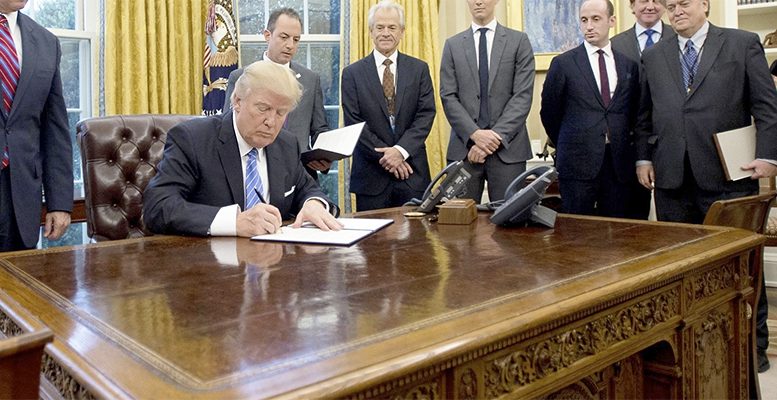*This post was originally published in NGDPAdvisers
Benjamin Cole | You can make a lot of money betting against U.S. President Trump, who seemingly never misses an opportunity to miss an opportunity. But with the announced mid-October resignation of U.S. Federal Reserve Vice Chairman Stanley Fischer, Trump has a chance to do what Presidents Obama and Bush never did: appoint growth-oriented members to control nation’s central bank. There are now four empty seats on the seven-member Fed Board of Governors, and Fed Chair Janet Yellen’s term expires in February.
Of course, preferably Trump should appoint Market Monetarists—those who have the Fed pursue a nominal GDP level target—to make U.S. monetary policy. But barring that, perhaps the one-time real-estate developer Trump will favor bankers who yearn for economic growth, rather than peevishly fixating on inflation.
With Fischer’s seat empty, Trump could even appoint an immediate successor, and heavily hint the new Vice Chair is in line for the Chair when Yellen quits. In this way, monetary policy could be goosed nearly right away.
The ossification of the Fed, and perhaps the entire orthodox macroeconomic profession, has been dispiriting at the least, not to mention the untold damage done to millions of Americans who wanted jobs or to make money in business.
Since the Great Recession, the U.S. economy has limped along, unable to regain growth and productivity rates of yesteryear. But inflation, as measured, has been consistently below even the Fed’s dubiously low 2.0% PCE target, bringing beams to the faces of the central banker set. Meanwhile, labor participation rates faltered and never fully recovered.
Real median weekly earnings for full-time male workers are below 1979 levels, and wages are yet stagnant. Nevertheless, recent Beige Books issued from the Fed have found “spreading labor shortages.” The September 6 Beige Book darkly recounted that in multiple Fed districts, “There were reports of worker shortages in numerous industries, most notably in manufacturing and construction.”
Is it not embarrassing when people with economic training refer to “worker shortages”? Is “worker shortages” not a problem easily fixed by supply and demand price signals? Are there wage ceilings in manufacturing and construction? Unions are dead. Are Americans prevented from entering these trades by regulation or law? What is the definition of a “worker shortage”?
Conclusion
The Fed appears lost, consistently predicting since 2008 that both economic growth and inflation would be higher than what actually resulted, and now fearfully recounting “worker shortages.”
But then, the bulk of the U.S. orthodox macroeconomics profession has been predicting higher inflation and interest rates for decades—all the while, inflation and interest rates have been in secular decline. The profession and the central bank appear obsessed with an inflation that never arrives.
As stated at the outset, betting against Trump is a compelling proposition. Trump has before him the opportunity to stack the Fed Board of Governors with new blood, but deep down inside we all know he will botch it.
Presidents Richard Nixon and Ronald Reagan did appoint pro-growth members to the Fed board, with Reagan appointees famously outvoting the Chairman Paul Volcker in to cut interest rates in February 1986, a vote that so irked Volcker that he threatened to resign. The Reaganauts huddled and backed down.
Let us hope Trump takes a page out of Reagan’s book, and stacks the Fed board—but with the Fed Chair position open, a pro-growth Trump slate would not have to back down.
For investors, something to watch.





